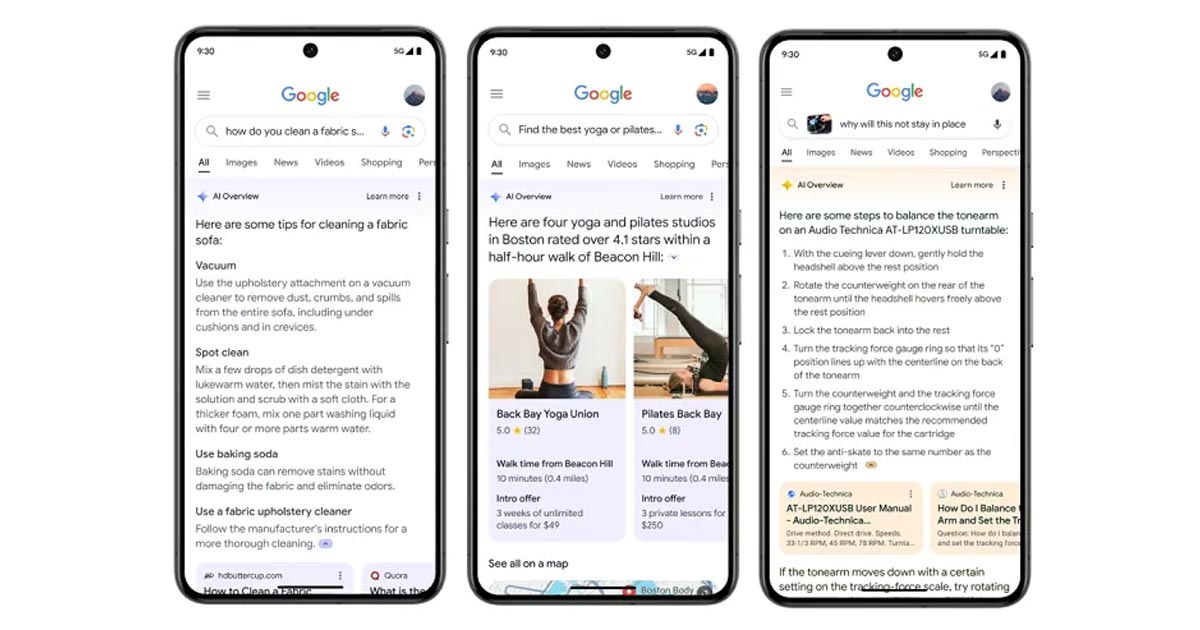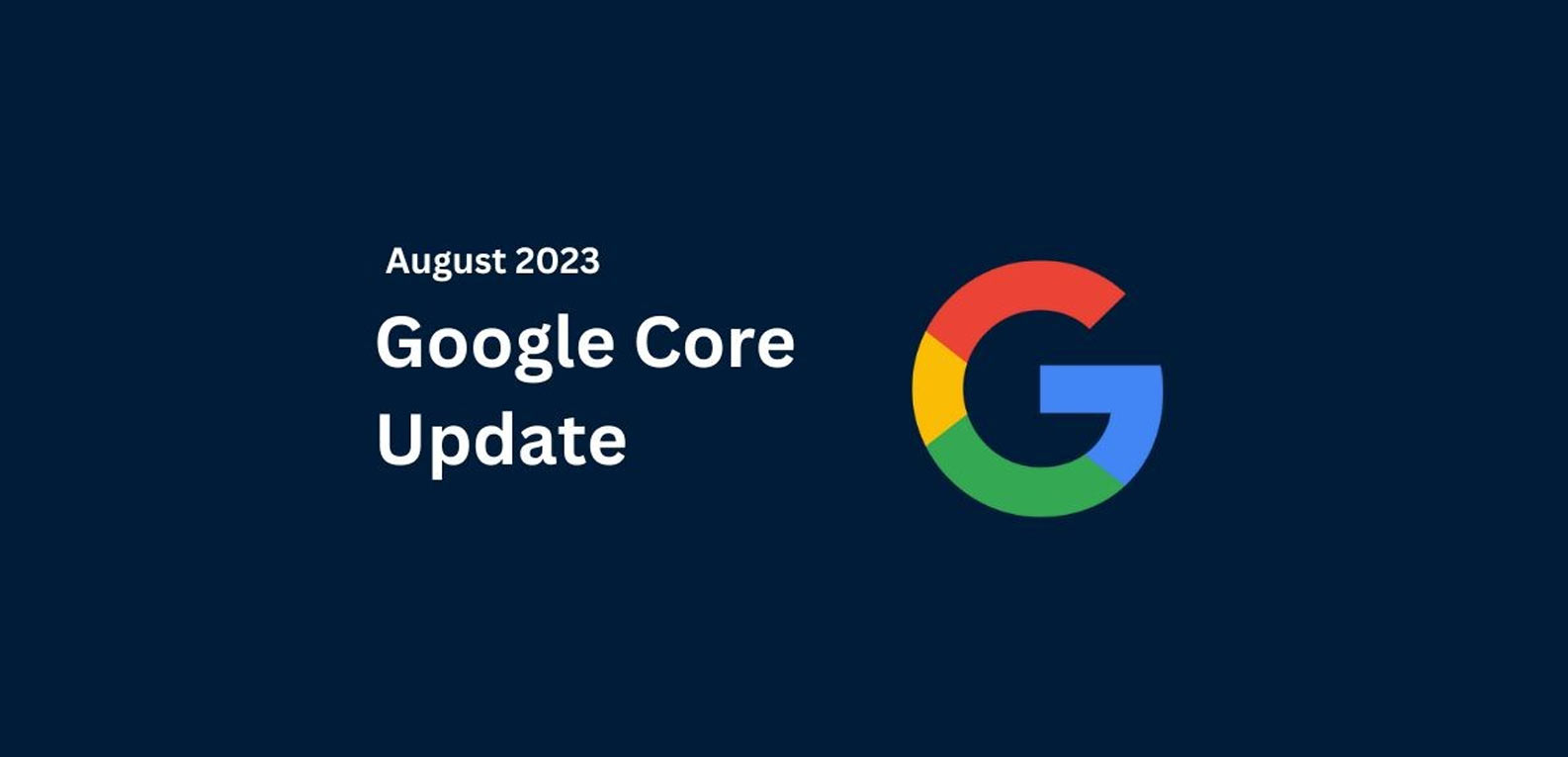With the integration of AI-generated content into Google Search, many are speculating about the future of SEO, referral traffic, and brand discovery. Google’s introduction of AI-generated topic summaries, or “AI Overviews,” could significantly alter the landscape of search engine optimization, posing both challenges and opportunities for content creators and marketers alike.
What AI Overviews Mean for Search Results
Google’s new generative search experience, powered by its Gemini AI, aims to provide AI-generated responses to specific queries before displaying traditional website links. This new approach is designed to offer users quick and concise answers directly on the search results page. For example, these AI Overviews might offer cleaning tips for a sofa, list yoga studios in a particular area, or explain concepts based on image inputs.
The integration of AI into search results is already in the process of being rolled out, and it represents a significant shift in how information is delivered to users. By providing direct answers to queries, Google aims to enhance user experience by reducing the time spent searching for information across multiple websites. However, this shift also raises questions about the implications for website traffic and the traditional SEO practices that many businesses rely on.
The Impact on Website Traffic
One of the primary concerns with AI-generated responses is their potential to divert traffic away from websites. Over the years, the web has become saturated with pages optimized for long-tail search queries, designed to attract more visitors. While some of these pages offer valuable content, others are less helpful or even spammy. With AI-generated answers, there’s a risk of linking to less credible sites, but centralized summaries from trusted sources might offer a better user experience.
This shift could disrupt the traffic strategies of websites that have traditionally provided detailed answers to common queries. The practice of creating content to attract traffic and generate business might become less effective if the same information is provided directly in the search results. For instance, if a user searches for “how to clean a sofa” and receives a comprehensive AI-generated answer on the search results page, they may have no need to click through to a website for more information.
Evolving SEO Strategies
As AI-generated content becomes more prevalent in search results, new SEO strategies will likely emerge. It’s important to note that AI-generated summaries will not appear for all queries, only those deemed suitable by Google. Despite this, the impact on SEO practices will be significant. Content creators and marketers will need to adapt their strategies to ensure their websites remain visible and relevant.
One potential strategy could involve focusing on creating content that is not only informative but also highly engaging and unique. This could include incorporating multimedia elements such as videos, infographics, and interactive tools that provide added value beyond what an AI-generated summary can offer. Additionally, building a strong brand presence and fostering direct relationships with audiences through social media and email marketing could become increasingly important.
Implications for Informational Websites
Websites like Wikipedia, which rely heavily on informational search traffic, might face significant challenges. Since 80% of Google Search traffic is informational, detailed in-stream answers could reduce the necessity for users to click through to websites, thus limiting referrals. Informational websites that have built their traffic strategies around providing comprehensive answers to common questions may need to rethink their approach.
For instance, Wikipedia might consider enhancing its content with more interactive elements or providing deeper insights that go beyond what an AI-generated summary can offer. Similarly, other informational websites may need to focus on niche topics or specialized content that is less likely to be covered by AI-generated summaries.
Google’s Position on AI Overviews
Google acknowledges the importance of maintaining direct links in search results. In its announcement, Google highlighted that AI Overviews lead to a greater diversity of websites being visited for complex questions. The company claims that links in AI Overviews receive more clicks compared to traditional web listings.
According to Google, AI Overviews are designed to complement, rather than replace, traditional search results. The goal is to provide users with quick answers to simple queries while still encouraging them to explore more detailed information on external websites. This approach is intended to enhance the overall user experience by making it easier for users to find the information they need quickly.
Potential Traffic Dynamics
While Google’s assurances sound promising, there’s skepticism about whether traffic will indeed increase. If Google’s ranking algorithm is used to select sources for AI Overviews and includes links to these sources, it might encourage users to click through for more information. However, the nature of many queries might mean users find the AI-generated summaries sufficient, reducing the need to visit additional sites.
For example, if a user searches for a quick recipe or a simple how-to guide, they may be satisfied with the information provided in the AI Overview and not feel the need to click through to a website. On the other hand, for more complex or detailed queries, users might still prefer to visit external websites to gain a deeper understanding or access additional resources.
Adapting to the New SEO Landscape
The introduction of AI Overviews in Google Search will undoubtedly affect SEO, but the extent of this impact remains to be seen. As AI-generated summaries become more prevalent, SEO strategies will need to adapt to maintain and grow referral traffic. This could involve focusing on creating high-quality, unique content that offers value beyond what an AI-generated summary can provide.
Additionally, businesses might need to invest more in building their brand and engaging directly with their audience through various channels. By fostering strong relationships with their audience, businesses can drive traffic from sources other than search engines, such as social media, email marketing, and direct visits.
Conclusion
The integration of generative AI in Google Search marks a significant shift in the search engine landscape. While AI Overviews offer the potential to enhance user experience by providing quick and concise answers to queries, they also pose challenges for traditional SEO practices and website traffic strategies. As the SEO landscape evolves, content creators and marketers will need to adapt their strategies to stay competitive.
Focusing on creating unique, engaging content and building a strong brand presence will be crucial for maintaining visibility and driving traffic in the age of AI-generated search results. While the full impact of AI Overviews remains to be seen, one thing is clear: the SEO landscape is set for a transformation, and those who adapt will be best positioned to thrive in this new environment.




